I’m an artist working on an immersive film for Apple Vision Pro. I’m documenting the process here. I also publish a zine about what I’m making.
-
Spatial Photo to Black & White Anaglyph
The camera app in iOS 18 has a “Spatial” mode for iPhone 16 and 16 Pro. There you can switch between photos and video.

I’ve always wanted to make a B&W anaglyph photo zine and while running this morning I realized that I knew how to make this work for images taken with my new iPhone.
- Select your images in the Photos desktop app and use command+option+e to export them all at once.
- Open the terminal and use Mike Swanson’s Spatial tool to split all the images into left and right views.
for f in *.HEIC; do spatial export -i "$f" -o Left_$f.png -o Right_$f.png;done- Use Stereo Photo Maker to open sets of left and right images, and then use option+a to auto align the images.
- Then export your image from Stereo Photo Maker
Here’s one shot at my desk. I cropped this in Photoshop to see what it might look like in a 5.5″ X 8.5″ zine.
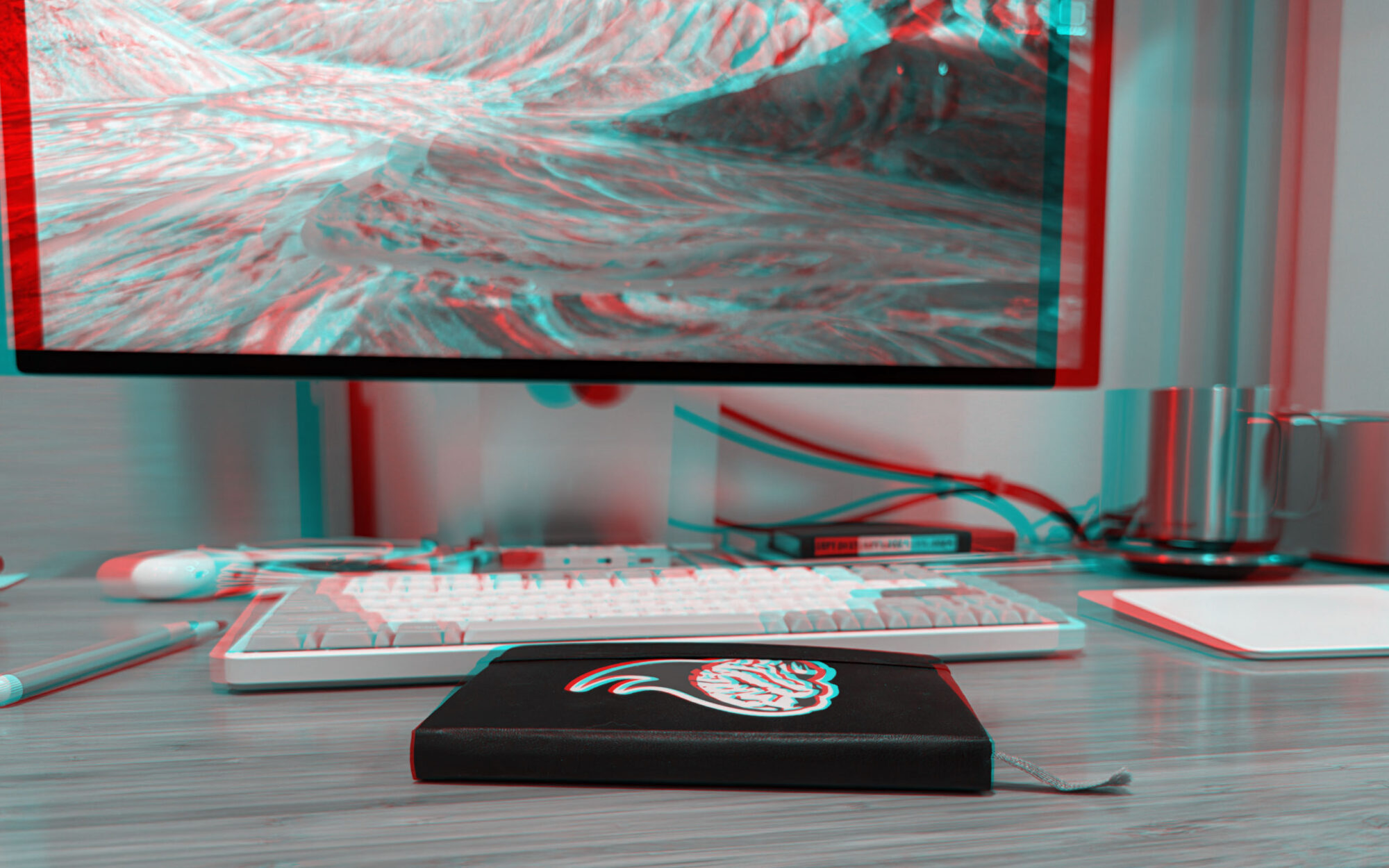
-
I love this idea
It’s not a new idea but it’s new to me. I’d love to steal this and do something with film and/or performance.
-
16K Upscale
I’ve seen a few VR180 creators on Reddit talk about turning their 8K footage from the Canon R5C into 16K. The examples I’ve seen do look better so I thought I’d try it out. I used Topaz Labs Video AI to upscale a 30 second clip that I shot while we on vacation in Guerneville, CA a couple of weeks ago.
It took about 26 hours (!) to upscale the video on my Mac Studio (M1 Max processor). I just used the default settings. I imagine I can get better results in the future. Here are crops from the original and upscaled video.
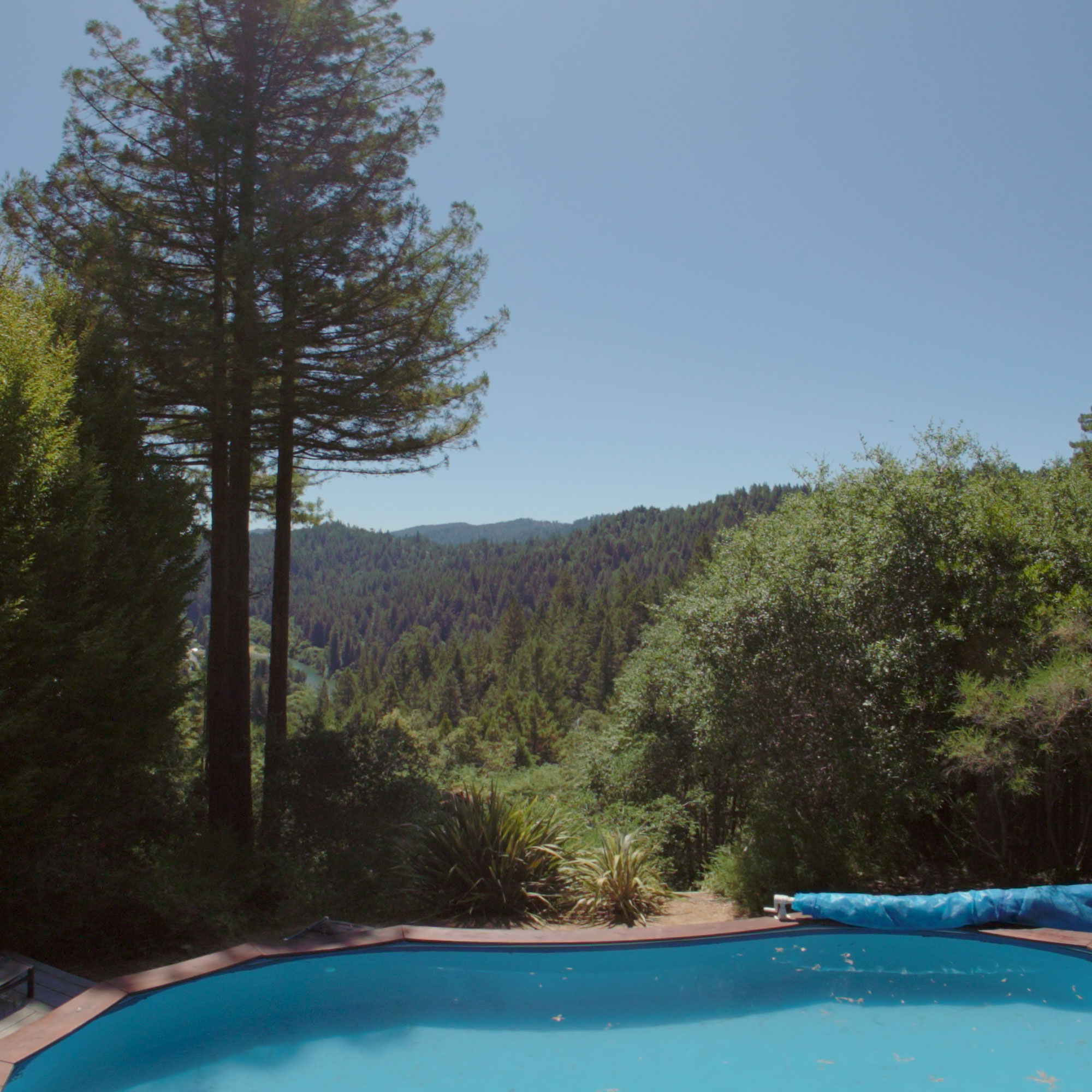
Original 8K video – click to view original 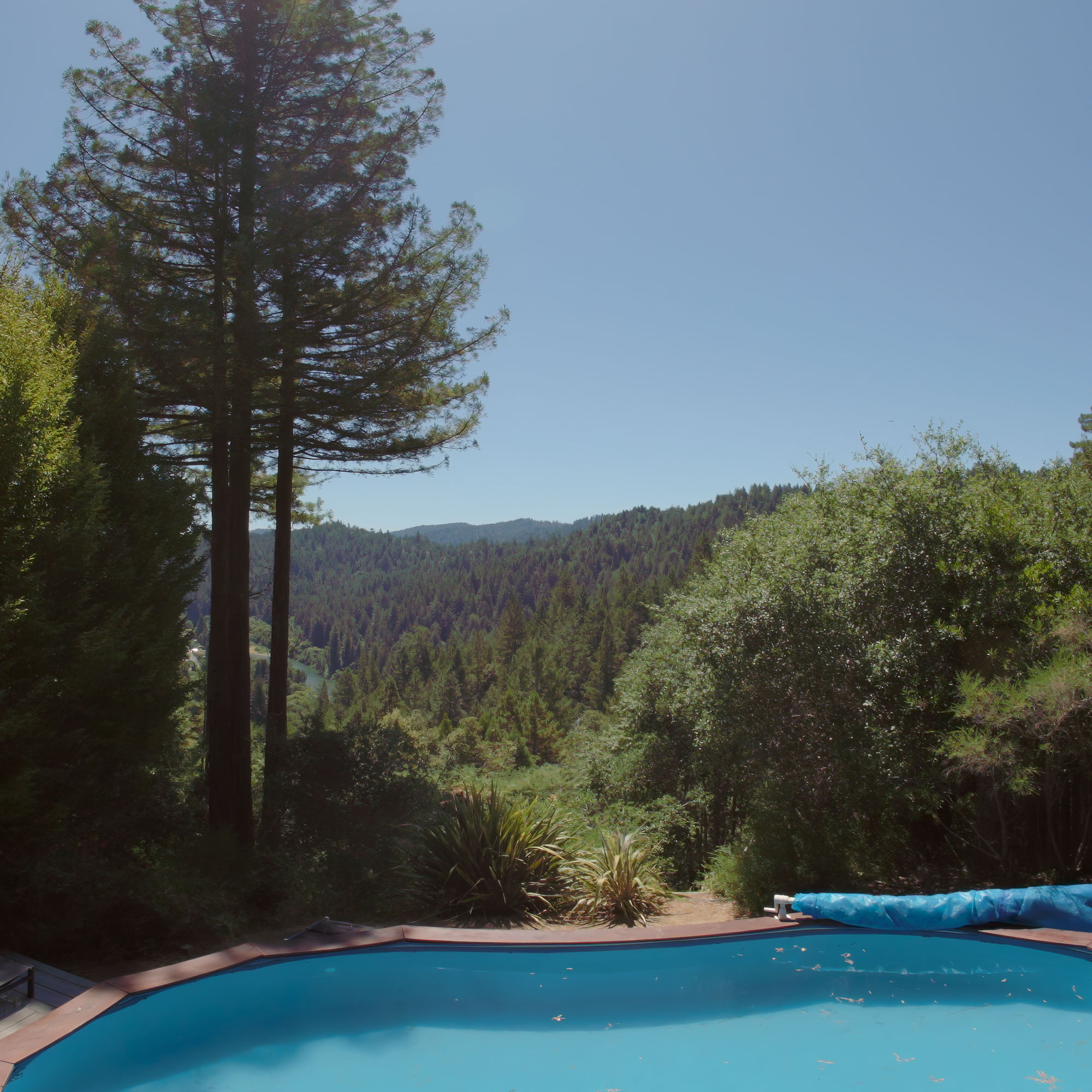
Upscaled to 16K – click to view original -
Rough Prototype
I spent the Labor Day weekend learning how to add text and 2D video into an immersive video scene. I’m doing this because I have this vision for a film/app for the Apple Vision Pro and I thought I could 1. prototype a large part of this experience in video and 2. I could also make immersive videos like this and learn how to tell stories in this medium.
So to begin with, I came up with the requirements for my project.
- I had to use existing video. I wasn’t going to waste time shooting new things or trying to have this video mean anything or stand on it’s own. I’m just working on learning the technical part.
- I want to include text in the 3D space.
- I want to include 2D video in the 3D space.
There’s more I want to learn — immersive audio & 3D video in the 3D space — but I’ll save that for another time. Knowing how to add text and 2D video is most of what I need and it allows me to work on storytelling in parallel with the other technical skills.
If you have an Apple Vision Pro, you can download this video and view it in Spatialgen.
-
Photo Novels
I got an email from someone who saw my La Jetée zine in Quimby’s in Chicago asking if I knew more about genre. I don’t but a little bit of searching led me to this presentation by SAW (Sequential Artists Workshop) which makes me really want to revisit this format.
-
Back to Work
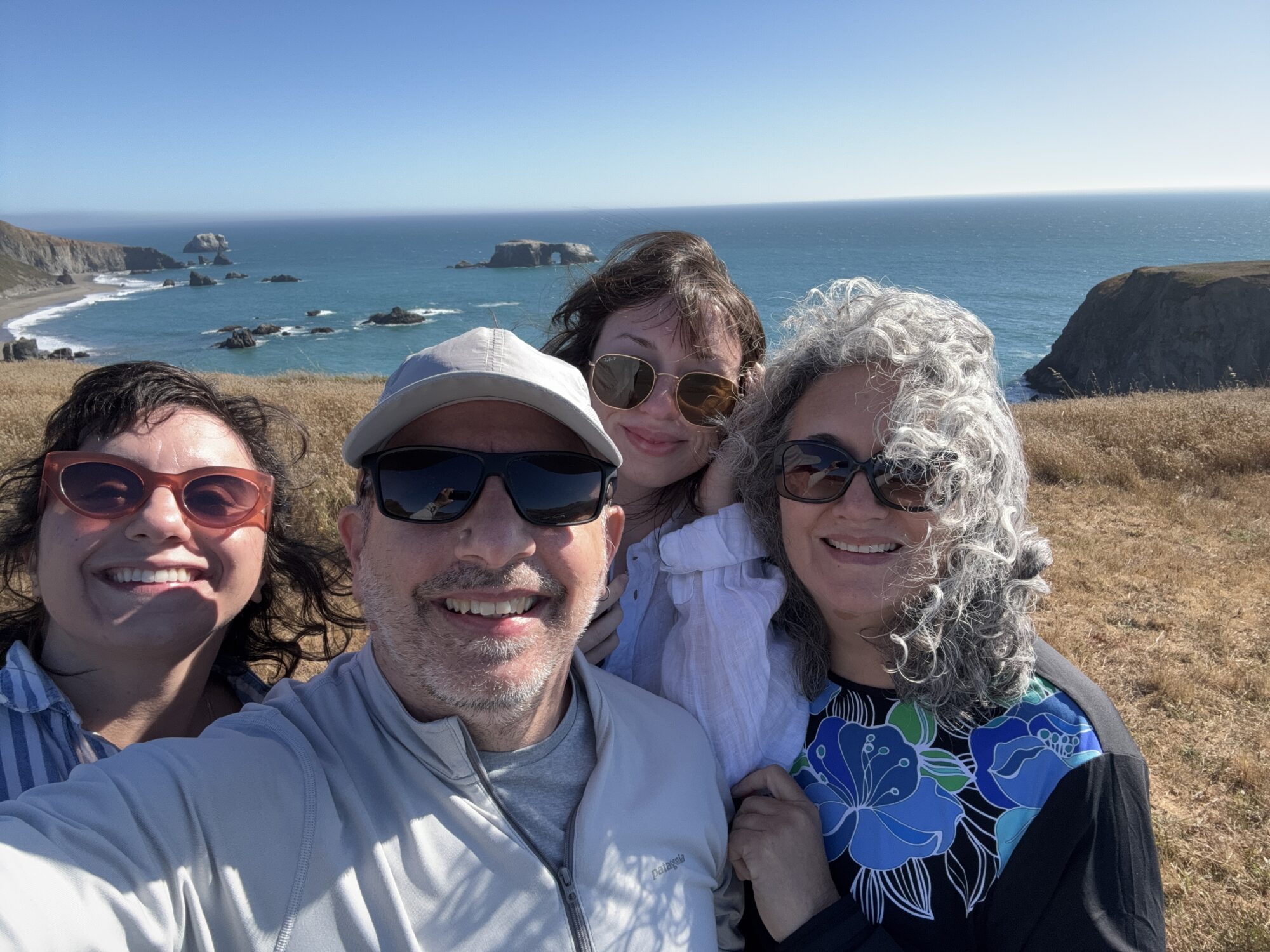
Goat Rock Beach 2024 I met my family in Guerneville after my week in Dublin for MozWeek. Unfortunately, I got Covid and spent the last couple of days pretty sick. Thankfully nobody else got it and I’m mostly better now.
-
All The Things

Tomorrow I’m heading to Dublin for MozWeek (annual company-wide meeting). I have a handful of zines that I’m bringing to give to people but I thought I could make something to give to others that would take them to the online versions. I ordered some NFC tags and attached them to small cards to make them easier to handle. Since I now had a small card, I also put a QR code and the URL on the other side.
-
A Mind Forever Voyaging
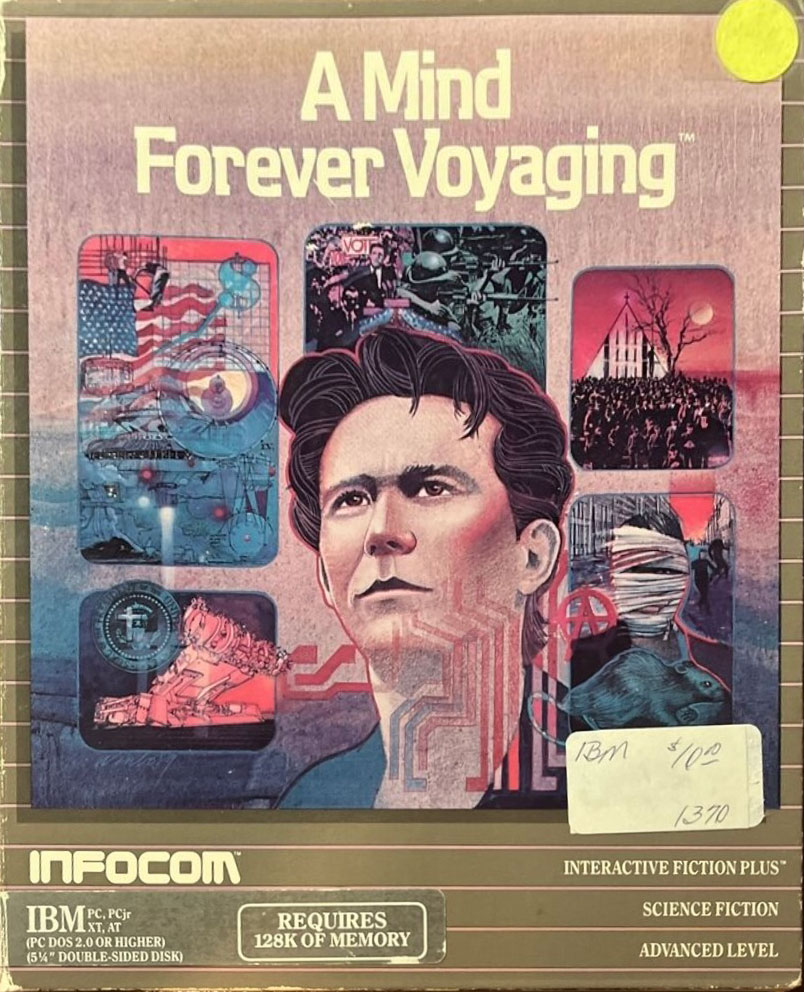
A Mind Forever Voyaging by Steve Meretzky – Released: September 1985 (Infocom) The other day I was talking with a friend about selling things on eBay. I mentioned selling some interactive fiction title that I’d found in Goodwill about 12 years ago. For some reason I thought it was A Mind Forever Voyaging but it turns out it was something else. I don’t know why this is what came to mind but when I searched for information about it, I discovered that it’s covered in 50 Years of Text Games (which I own). So today I read about it while eating lunch. One of the things I found interesting was that unlike most of what had come before, this game was not about solving puzzles. Instead you explored, observed, and reported. This is the kind of mechanic I want in the game portion of The Phantom Moon.
Read the original version of the article, 1985: A Mind Forever Voyaging by Aaron A. Reed.
-
Dual Fisheye to Rectilinear 3D
There’s not a lot of info on the web for transforming the fisheye images you get with the Canon Dual Fisheye lens to rectilinear images.

Shot with Canon R5 C and the 5.2mm F2.8 Dual Fisheye lens I finally found this tutorial for Stereo Photo Maker but I was missing the options that I needed in the menu. Finally I realized that these were only available in the Windows version. Thankfully I have an old Windows laptop that I keep for things like this. So following the tutorial I produced this image.

Rectilinear crop exported in B&W anaglyph
